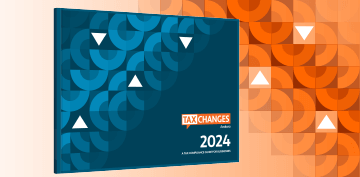What's new with SaaS?
It’s been said that by 2020, most aspects of our lives will be connected. We’re talking about the internet of things (IoT): connected coffee makers, lamps, ovens, refrigerators, wearable devices, you name it. Back in 2014, Forbes observed that “anything that can be connected, will be connected.” The prediction has, in just a few short years, become reality.
Many businesses have already made the shift from on-premises solutions to three major types of cloud-based solutions: software-as-a-service (SaaS), Platform-as-a-service (PaaS) and Infrastructure-as-a-service (IaaS).
The more the world moves towards interconnectivity, and the more businesses seek ways to streamline their workforce, the more movement toward the cloud we can expect. During the next five years, more than $1 trillion in IT spending is expected to be “directly or indirectly affected by the shift to the cloud.” According to Gartner, an information technology research company, “Cloud-first strategies are the foundation for staying relevant in a fast-paced world.” The shift to SaaS is expected to grow by 37% through 2020.
State and local tax authorities have noticed this shift to the cloud, and many are eager reap revenue from it. Yet since it’s a relatively new industry, states are struggling with how — or if — to apply tax to it. In 2013, most states were “still silent” on how to tax the sale and use of IaaS, PaaS, and SaaS and provided “minimal guidance … on the nexus and sourcing issues surrounding any cloud services” (Tax Adviser). However, that’s changing as more and more states pass laws and issue rulings about cloud computing services. As a result, sales and use tax compliance around cloud computing is becoming more complicated.
Businesses are struggling to decipher how different states tax cloud-based services and to be compliant in the face of frequent change. And this is an ever-changing landscape — a fact underscored by how frequently tax authorities need to address and update their policies.
Recent changes
Massachusetts enacted a tax on computer software and services in 2013 but quickly repealed it. Then Department of Revenue Director Amy Pitter has acknowledged that “the complexities and confusion surrounding the law were a burden”— even during its brief tenure (GovTech). It was also extremely unpopular among businesses.
Michigan attempted to tax remotely accessed software in 2014, but the court intervened. In the fall of 2015, Michigan again delved into the taxability of cloud computing. And early this year, the Department of Taxation created two distinct categories of cloud computing for tax purposes: one for software that’s accessed remotely, and one for electronically delivered prewritten computer software. Taxability is also affected by the primary object of a transaction.
Even cities are joining the fray. Chicago recently extended its personal property lease transaction tax to cloud computing services. After some delay, the tax took effect on January 1, 2016 and applies retroactively, with a lookback period of four years for businesses that have not complied. To help ease confusion (and there is plenty of that) the Chicago Department of Finance issued Tax Ruling #12 to explain how to apply the lease tax to newer technologies such as SaaS, PaaS, and IaaS. Additional information.
Crazy-making Colorado
Then there’s Colorado. The state of Colorado exempts software-as-a-service. However, Colorado is a home rule state, meaning that counties and cities with a population of 2,000 or greater have the power to levy and collect taxes as they see fit. Approximately 70 Colorado municipalities have adopted home rule, and some of these tax SaaS at the local level (tax is remitted to the local tax authority).
That’s the case in Denver. Denver sales and use tax applies to all software, custom and pre-written, whether it is downloaded, delivered electronically, or accessed via the cloud. See Denver’s Tax Guide Topic No. 18, Data Processing, for additional information.
The situation is a bit more complicated in the City of Boulder, which dances around the edges but doesn’t specifically address the taxability of cloud computing services. For example, the city explains that retail sales of computer software are taxable unless “the cost of modification of the software is greater than 25% of the price of the unmodified software.” And it states that a license fee paid by a manufacturing company to a software manufacturer for the right to use its software is taxable. Software updates may or may not be taxable. When doing business in Boulder and in doubt, businesses are advised to contact the city.
In Fort Collins, sales and use tax “is imposed on the purchase price or charge for access, use, or receipt of information” even when the information is received electronically. However, “interactive systems on which the user updates as well as accesses the data” are not considered to be taxable information services. As with Boulder, the taxability of cloud computing services is not directly addressed.
Check out Will’s Whiteboard on the crazy making states for additional information about Colorado home rule.
Learn more about how states treat taxability of software and digital goods and services.
Tax Compliance in the Cloud
More companies are turning to SaaS solutions to manage business processes, saving time, resources and money. Risk mitigation is also improved by moving sales and use tax compliance to the cloud. With tax rates and rules constantly changing, on premise and manual processes are inefficient and error-prone. Avalara’s SaaS solution automates this process for faster, easier, more reliable treatment of sales and use taxes on taxable and exempt transactions. Avalara has the added benefit of being a simple add-on to nearly any accounting system, ERP, ecommerce or point of sale system. Learn more about Avalara AvaTax.

Avalara Tax Changes 2024: Get your copy now
Stay ahead of 2024’s biggest tax changes with this comprehensive, compelling report covering seven industries.
Stay up to date
Sign up for our free newsletter and stay up to date with the latest tax news.












